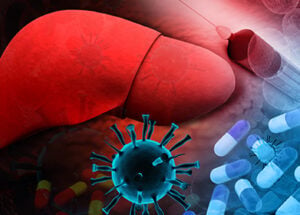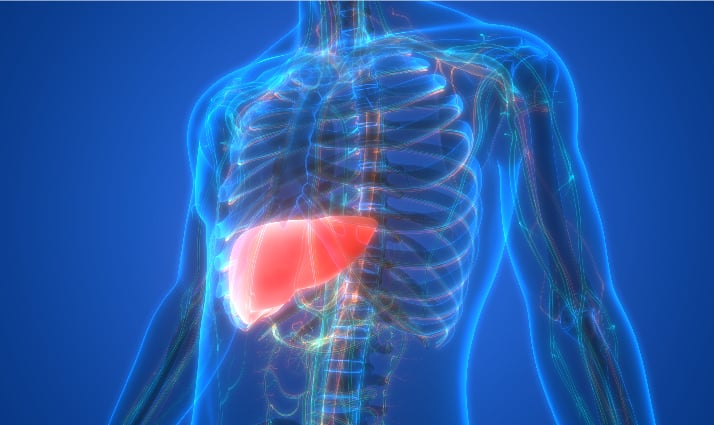What is Gaucher’s disease
June 10, 2022

Gaucher Disease: What is it?
Gaucher disease is a genetic condition passed down through families. This is a lysosomal storage disorder, causing fatty substances to accumulate in the bone marrow, liver, and spleen. The fatty substances can weaken bones and enlarge organs. There is no cure for Gaucher disease, but treatment can improve the quality of life.
Contents
- Types of Gaucher’s Disease
- The Causes of Gaucher’s Disease
- Symptoms of Gaucher’s Disease
- Diagnosis of Gaucher’s Disease
- Treatment for Gaucher’s disease
- The complications of Gaucher’s Disease
- What are the signs and symptoms of Gaucher’s disease?
- Is Gaucher’s disease fatal?
- What are the effects of Gaucher disease?
Types of Gaucher Disease
- Type 1: This is the most common form of Gaucher disease. It affects nearly 90% of people who contract Gaucher disease. If you have type 1, you don’t have enough platelets in your blood. This can make you bruise easily and make you tired. Some of the symptoms may start at any age. For example, you might have an enlarged liver or spleen. In addition, you may have problems with your kidneys, lungs, and bones.
- Type 2: This form of the disease affects babies between 3 months and six months old. It is perilous.
- Type 3: Gaucher type 3 is the most common disease, but it is rare in the United States. It is seen before age ten and can cause bone and organ abnormalities and neurological problems. However, with treatment, many people with Gaucher disease type 3 can live long and healthy lives.
The Causes of Gaucher Disease
Gaucher disease is a disorder that is inherited. It is passed down through families. People with Gaucher disease don’t have enough of an enzyme called glucocerebrosidase (GCase) GCase enzymes are proteins that help break down fats (sphingolipids) in the body. If the body does not have enough enzymes, fatty chemicals (called Gaucher cells) build up in the organs, bone marrow, and brain. Excess fat can cause a wide range of problems and symptoms. In addition, their effects on the organs can cause problems, including the destruction of blood cells and the weakening of bones.
Also Read: Basic Exercises To Strengthen Your Lungs
Symptoms of Gaucher’s Disease
Gaucher disease experiences different symptoms that vary from one person to another. Some people with Gaucher disease have little or no symptoms. However, symptoms can lead to serious health problems. Signs of Gaucher disease include:
- Problems affecting the organs and blood: As fatty chemicals build up in the body, people with Gaucher disease may experience various symptoms in the blood and organs. Sometimes, people develop brown spots on their skin. The symptoms of a cold can range from mild to severe and include a range of symptoms.
- Anaemia is caused when lipids build up in the bone marrow and destroy red blood cells. Red blood cells are responsible for transporting oxygen throughout the body. Anaemia is a condition in which there are too few red blood cells.
- Enlarged Organs: The spleen and liver get more significant as fatty substances build up, which causes the belly to become enlarged and tender. The enlarged spleen can damage platelets, leading to a low platelet count and bleeding problems.
- Fatigue is common in people with Gaucher disease due to their anaemia.
- Lung problems can be caused by the accumulation of fatty chemicals in the lungs. This can make it difficult to breathe.
- Bleeding and bruising issues: Low platelet counts cause people with Gaucher disease to bruise easily. Their blood doesn’t clot as it should. As a result, they are at risk of heavy or prolonged bleeding, even after minor injuries, surgery, or nosebleeds.
- Pain: Decreased blood flow can cause pain in the bones. Gaucher disease is a disorder that can cause arthritis, joint pain, and even damage to the joints.
- Osteonecrosis: This condition, called avascular necrosis, happens when insufficient oxygen reaches the bones. Without enough oxygen, bone tissue can break down and die.
- Bones fracture easily: Gaucher disease causes osteoporosis, which occurs when the bones don’t get enough calcium. Bones can break easily with osteoporosis (and osteopenia, a mild form of osteoporosis). Weakened bones can lead to skeletal abnormalities.
Also Read: Bowed Legs & Knock Knees
Diagnosis of Gaucher’s Disease
Your doctor will examine you or your child and ask about your symptoms. Next, the healthcare provider uses a blood test to check for enzyme levels in people with Gaucher disease. Next, your doctor will do a DNA test to see if you are a carrier of Gaucher disease. If you are a carrier of Gaucher disease, you may not have any symptoms, but you can pass the disease to your children. If you are a carrier and are considering having children, your provider will refer you to a genetic counselor to help you decide on the best plan for your family.
Treatment for Gaucher’s disease
Regular therapy can help treat Gaucher disease type 1. Treatments can either increase the levels of enzymes in Gaucher disease or decrease the amount of fatty substances in the body. There are various treatments for Gaucher disease type 1, depending on the severity of the condition. Some people may need to take medication regularly to control their symptoms, while others may need to have surgery or other treatments.
Enzyme Replacement Therapy
People with Gaucher disease need to take enzyme replacement therapy (ERT) regularly (every two weeks) to maintain treatment effectiveness. Your doctor gives you an enzyme infusion intravenously (through a vein in your arm). You may receive infusions at an infusion centre, or they can be given at home if you are tolerating them well. ERT (enzyme replacement therapy) is a treatment that delivers a specific enzyme directly into your bloodstream. This enzyme can break down fats so they can’t accumulate and cause problems.
Substrate reduction therapy (SRT)
Substrate reduction therapy is a treatment that helps reduce fatty acids in the body, so they can’t accumulate and create harmful chemicals. You take SRT medication orally (by mouth). You should continue to take your medicine regularly to prevent damage to your body.
The complications of Gaucher’s Disease
Gaucher disease can cause other health problems, such as:
- Delayed growth
- Delayed puberty
- Weak bones
- Bone pain
- Joint pain
- Trouble walking
- Not having enough healthy red blood cells (anaemia)
- Extreme tiredness
People also ask
1. What are the signs and symptoms of Gaucher’s disease?
- Enlarged spleen
- Enlarged liver
- Eye movement disorders
- Yellow spots in the eyes
- Not having enough healthy red blood cells (anaemia)
- Extreme tiredness (fatigue)
- Bruising
- Lung problems
2. Is Gaucher’s disease fatal?
Gaucher disease type 2 is a rare form of the disease that affects the nervous system. It is a severe neurological disease that also affects the organs involved in type 1 diabetes. Gaucher disease type 2 is typically fatal within the first two years of life due to the severe brain damage caused by the disease.
3. What are the effects of Gaucher disease?
Gaucher disease can cause bone weakness, which increases the risk of painful fractures. There are many different types of blood disorders. If someone has anemia, they may experience extreme fatigue.











